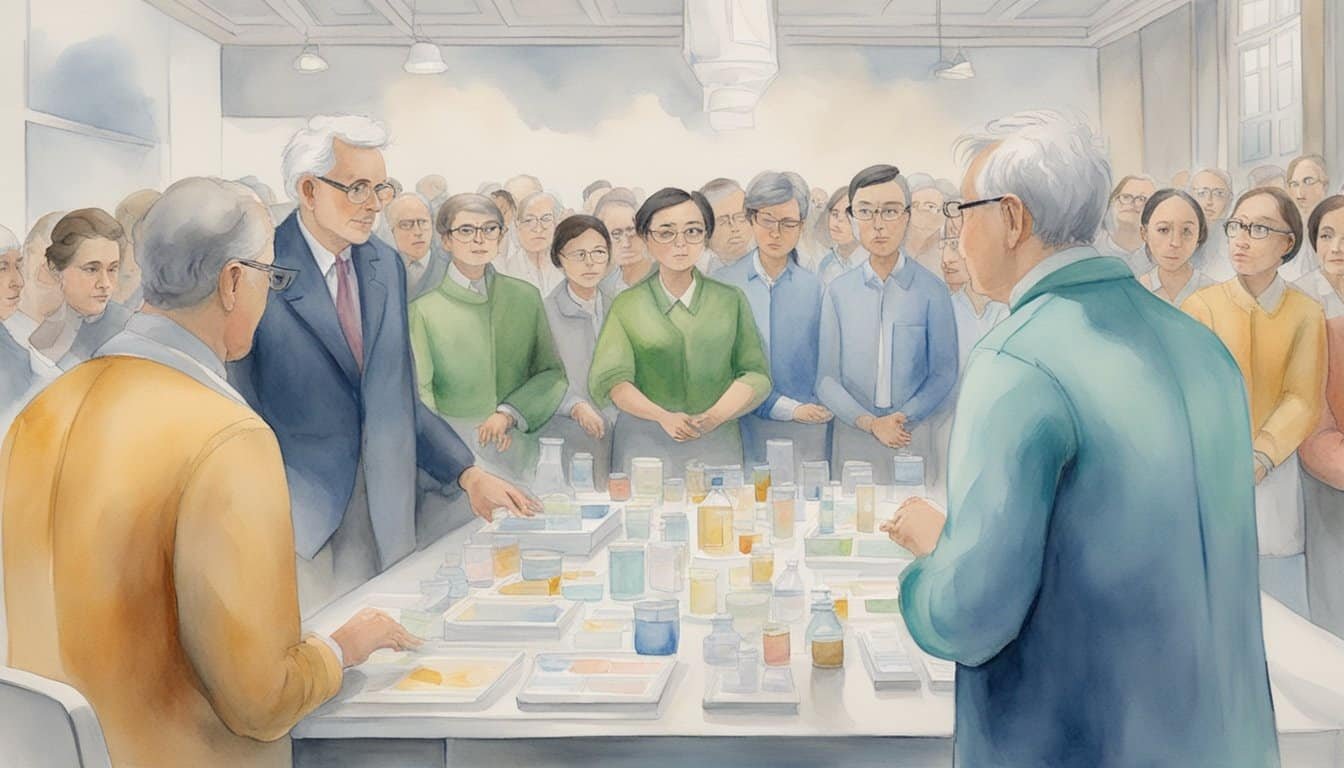Understanding CRISPR and Eugenics
One can’t explore the landscape of modern genetics without encountering CRISPR-Cas9, a revolutionary tool that has ignited discussions on its potential use in eugenics. From its precision in gene editing to its role in historical debates, this section delves into the specifics that intertwine these two complex themes.
The Basics of CRISPR-Cas9 Technology
CRISPR-Cas9 is a groundbreaking science innovation, often compared to molecular scissors for its ability to cut DNA strands. The technology involves two key components: the CRISPR sequence, a collection of DNA sequences that can recognize and bind to specific segments of a genome, and the Cas9 enzyme, which acts as the ‘scissors’ that snip the DNA. This allows for precise gene editing and genome editing, potentially correcting genetic defects or altering traits in both plants and animals.
Historical and Ethical Context of Eugenics
The term ‘eugenics’ dates back to the late 19th century, involving practices aimed at improving the gene pool by encouraging reproduction by people with desirable traits and discouraging reproduction by those with undesirable ones. This ideology has a fraught history, including forced sterilizations and discriminative policies. CRISPR’s ability to make specific changes in the germ line (cells that become gametes) resurrects these concerns, as it could be used to promote certain genetic characteristics, inadvertently or deliberately leading to a new era of eugenics. Ethical considerations are paramount when it comes to applications of CRISPR, as it poses questions on the rights of future generations and what constitutes ‘desirable’ traits.
Amidst these conversations, it is critical to remember CRISPR’s potential in fighting genetic diseases and the importance of ethical guidelines in harnessing this powerful technology. Please see Cut-and-paste genetics: A CRISPR revolution for further reading on CRISPR’s transformative power and its implications for genetics. On the ethical front, viewing the confluence of CRISPR and eugenics through a historical lens provides context and caution, as discussed in How we got to CRISPR : The dilemma of being human.
Ethical Implications and Public Perception

As CRISPR technology advances, it engages not only the scientific community but also the societal conscience. Debates around moral, bioethical, and public considerations come to the fore, examining the impact of gene editing on disability, discrimination, and quality of life.
Moral and Bioethical Concerns
The application of CRISPR in gene editing stirs a complex debate on bioethics. Questions of moral responsibility arise when altering human DNA, which could lead to unintended consequences or even discriminatory practices reminiscent of eugenics. It’s crucial to consider the potential suffering caused by side effects or errors in editing, weighing against the parental choice to prevent certain heritable diseases.
Public Opinion on Genetic Modification
Understanding public opinion on genetic modification is fundamental to the conversation on CRISPR. The public’s voice influences policy and ethics in science, as attitudes range from optimism about disease eradication to concerns about creating societal inequality. Encouraging informed dialogue ensures that public perception is grounded in knowledge rather than fear or misinformation.
CRISPR’s Impact on Disability and Society
CRISPR’s potential to edit genes raises questions about its impact on the disabled community and societal views on disability. There’s a fine line between improving quality of life and promoting discrimination through selection. The balance between embracing genetic diversity and addressing genetic disorders speaks to the core of CRISPR’s ethical debate in our society.
CRISPR’s Applications and Future Prospects

Eschewing the former image of science fiction, gene editing is now at the forefront of medical science, largely thanks to CRISPR. This technique is not just revolutionizing gene therapy but is also changing how we approach the treatment and prevention of various diseases.
Medical Advances and Gene Therapy
CRISPR, pioneered by scientists Jennifer Doudna and Emmanuelle Charpentier, who won the Nobel Prize in Chemistry, is a groundbreaking tool with profound implications for medicine. It’s been transformative in tackling genetic disorders like cystic fibrosis, offering the hope of correcting faulty DNA in affected individuals. Advances like these could significantly enhance life expectancy and quality of life for future generations.
In oncology, researchers are deploying CRISPR to modify the immune system to better recognize and combat cancers, paving the way for personalized medicine. Such targeted treatments could, one day, become the norm, significantly reducing the burden of cancers on society.
Regulation, Legislation, and the Path Ahead
With the power of CRISPR comes great responsibility. Regulation and legislation need to keep pace with scientific advancements—ensuring ethical boundaries are maintained while supporting innovation. Countries around the globe are grappling with these concerns, forging policies that balance medical enhancement with moral and ethical considerations.
Discussions focus on safeguarding against the potential misuse of gene editing technology in reproduction and the concept of ‘designer babies.’ The hope is to create a framework that honors individual choice while protecting the well-being of future generations.

